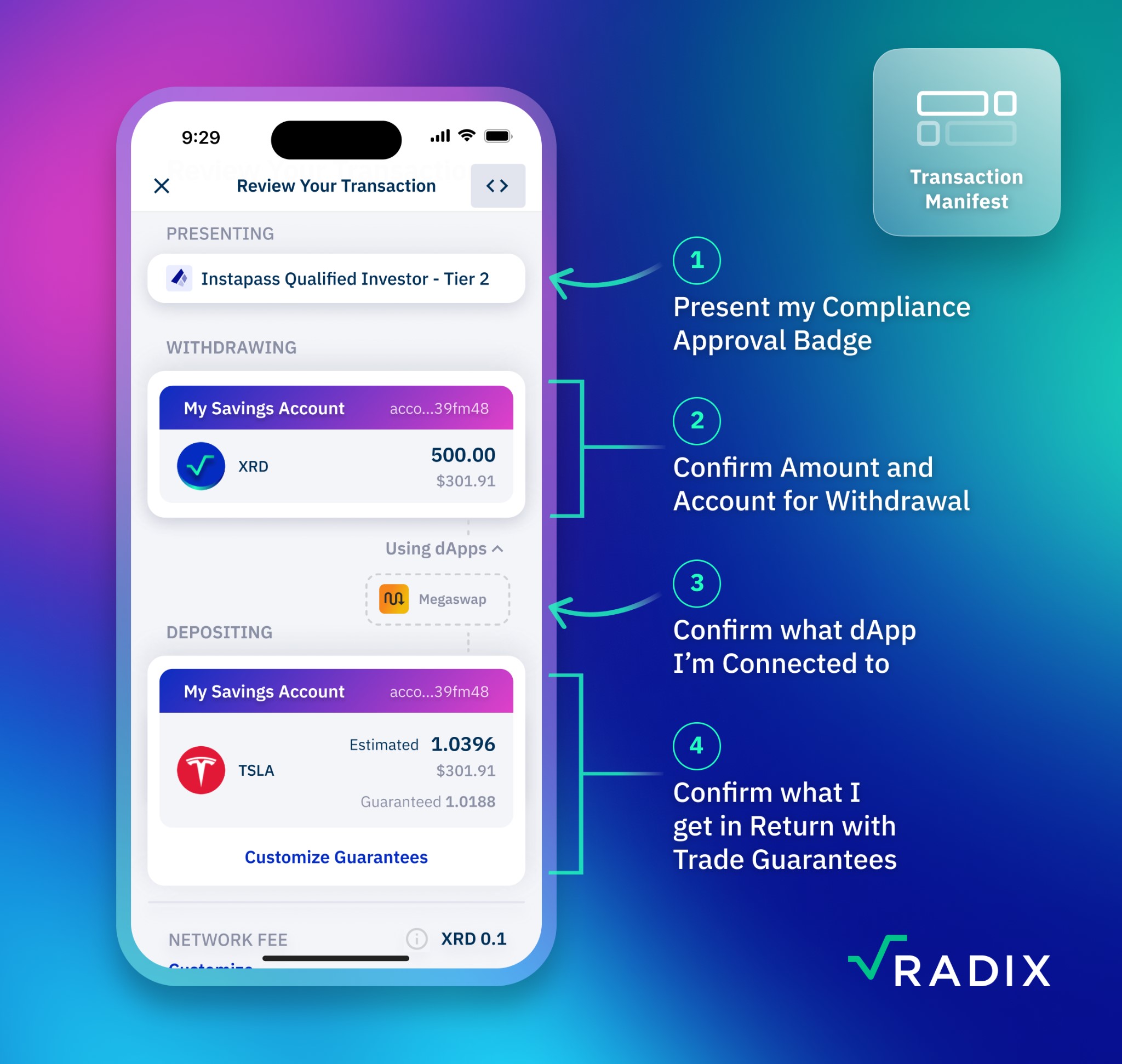Introduction
Decentralized Finance, often abbreviated as DeFi, showcases an unprecedented degree of potential in altering the dynamics of the financial landscape. However, presently employed infrastructures, such as Ethereum, find it challenging to deliver user experiences that are essential for mass adoption. Current add-ons to these platforms contribute more towards complexity, necessitating a deep-integration overhaul within the base protocol.
In a paradigm shift similar to how Apple transformed the mobile phone industry with the inception of the iPhone, Radix aims to redefine the concept of smart contract platforms. The vehicle set to drive this revolutionary change is the Babylon Mainnet upgrade, which is expected to go live on September 27, 2023. Let’s delve into the underlying technologies that constitute this transformative shift:
1. Smart Accounts
Addressing the prevalent security concern of seed phrases, Radix introduces Smart Accounts. At present, DeFi users record seed phrases which serve as a backup for account recovery. If these seed phrases are lost or compromised, users may end up losing their funds. In contrast, Smart Accounts act as smart contracts controlled by each user on the Radix Babylon mainnet. They securely handle tokens and allow for multifactor recovery using devices such as smartphones, Yubikeys, or even hardware wallets, eliminating the need for burdensome seed phrases.

2. Native Assets
Native Assets provide a solution for the issue of “infinite spend approvals” and the potential risk of secret token behavior. On current DeFi platforms such as Ethereum, users have to approve permissions for dApps like Uniswap to access their tokens. This means surrendering control to possibly dangerous smart contracts. However, Radix’s Native Assets provide a comprehensive understanding and management of tokens that are safely held in the user’s Smart Account. As the behavior of assets is guaranteed by the Radix platform, there’s no longer a risk when interacting with a malicious token that might steal your funds.
3. Transaction Manifest
The Transaction Manifest solves the issues of blind signing and unexpected transactions. Modern smart contract platforms that don’t fully understand tokens lead to enigmatic transaction descriptions. Radix overcomes this with the Transaction Manifest, which presents transactions in a common language, allowing users to put conditions for transaction completion while enhancing security and transparency.

4. Radix Connect
Radix Connect opens up a seamless mobile/desktop UX. Conventional DeFi experiences often vary between mobile wallets and browser extensions like Metamask. Radix Wallet presents a unified, mobile-centric interaction with dApps and transaction approvals. For desktop usage, Radix Connect links mobile with a browser extension, ensuring a flawless transition between devices.

5. Personas
Currently, logging into a website using a crypto wallet also means inadvertently disclosing your financial details and transaction history because you are logging in with your account that holds tokens.Personas allow separate online identities for different purposes, helping protect user privacy. Be it e-learning platforms or gaming, users can separate their identities online without jeopardizing their financial data.

In conclusion
In summary, the innovations offered by Radix could potentially revolutionize DeFi by tackling the core issues that prevent mass adoption. With user-centric solutions like Smart Accounts, Native Assets, Transaction Manifests, Radix Connect, and Personas, the submission of the Babylon upgrade by Radix brings with it the hope of redefining the DeFi landscape. They’re also ushering in a new era of accessibility, security, and user empowerment.
Take a look at the Full Stack Page or watch the RadFi Keynote to gain deeper insights about Radix.